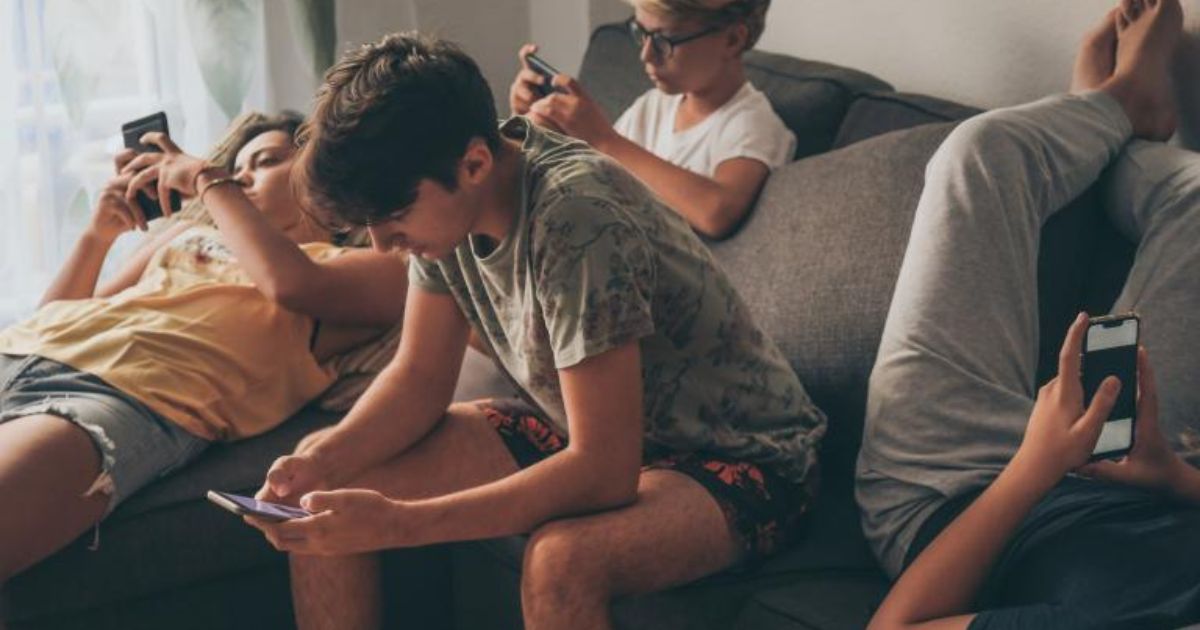The advent of social media and its endless scroll feature has given rise to an unforeseen addiction: the addiction to the internet. Researchers are now delving into the complex landscape of screen dependency, seeking to understand its nuances and its connection to anxiety.
Scientists from the University of Surrey have embarked on a study exploring the relationship between age and internet usage, and their findings shed light on a concerning trend: youth and internet addiction are intertwined.
Lead author of the study, Dr. Brigitte Stangl, commented, “We found that the younger you are, the more likely you are to be addicted to the internet, and this tendency decreases with age.” This observation underscores the pressing need to address the rising concerns surrounding internet addiction, especially among the younger generation.
Internet Usage And Screen Dependency – A Serious Issue
To delve deeper into problematic internet usage, addiction, and its varying degrees of severity, the research team surveyed 796 participants. Their findings revealed a stark contrast in online habits between different age groups.
Among respondents aged 24 years or younger, the average time spent online was a staggering six hours per day. In stark contrast, individuals aged 25 and older logged an average of just four hours of daily internet use.
This data illustrates a pronounced generational gap in internet consumption habits, highlighting the extent to which younger individuals are tethered to the digital realm.
The study’s findings, published in the Journal of Travel & Tourism Marketing, align with emerging data that underscores the negative impacts of excessive internet usage on the mental health of American youth. It is a sobering reminder of the urgent need to address the psychological toll that unrestricted internet access can take on the younger generation.
The Mental Health Toll on American Youth
As the study from the University of Surrey suggests, the prevalence of internet addiction is particularly pronounced among young people. But what are the consequences of this growing dependency on the digital world?
Emerging data in the United States reveals disturbing trends regarding the mental health of American youth. As access to the internet becomes more pervasive, especially through smartphones and social media, the psychological well-being of young individuals is increasingly at risk.
One of the key concerns is the impact of excessive screen time on anxiety levels. Studies have shown a significant association between prolonged internet usage, particularly on social media platforms, and increased levels of anxiety among young people.
The constant exposure to curated online personas, unrealistic beauty standards, and the pressure to conform to digital norms can contribute to feelings of inadequacy and anxiety among the youth. This phenomenon has raised alarms among mental health professionals, who are witnessing a surge in cases of anxiety and related disorders among adolescents.
Additionally, the pervasive nature of the internet has blurred the boundaries between the digital and real worlds. The constant connectivity can disrupt sleep patterns, leading to sleep deprivation, a known contributor to anxiety and other mental health issues.
The findings from the University of Surrey’s study and the concerning trends in the mental health of American youth underscore the urgency of addressing internet addiction and its ramifications.
Educational institutions, parents, and policymakers are increasingly recognizing the need for comprehensive digital literacy and mental health education. Initiatives aimed at promoting responsible internet usage and fostering open conversations about mental health are crucial steps in addressing this issue.
Furthermore, mental health support services must be readily available and accessible to young individuals who may be grappling with the adverse effects of internet addiction and anxiety. The collaborative efforts of educators, parents, mental health professionals, and technology companies are essential in creating a safer and more balanced digital environment for the younger generation.
In conclusion, the growing prevalence of internet addiction, particularly among young people, poses significant challenges to mental health. The study from the University of Surrey highlights the generational disparities in internet usage, while emerging data in the United States emphasizes the detrimental impact of excessive screen time on the mental well-being of American youth.
Addressing this issue demands a multifaceted approach, involving education, awareness, and accessible mental health support services, to safeguard the psychological health of the younger generation in an increasingly digital world.





